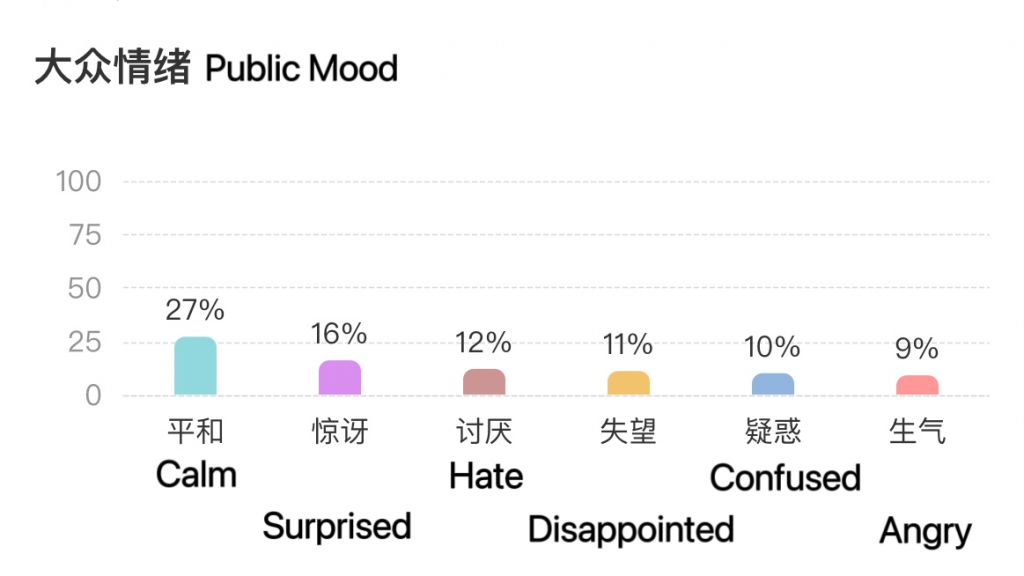Dragons Den
I got a lot of feedback through this week’s Dragons Den section, which is very helpful at the beginning of a project, but it also left me with some confusion.
Firstly, I was advised that the topic was not unique enough and that meditation is a method that everyone knows, so maybe I need to find some more original perspectives under the topic of FOMO. When I was writing my WWHI proposal, I realised that even though many Chinese people are anxious and feel left behind in the internet mode of information overload and over-accelerated diffusion, the word FOMO and its synonymous Chinese words are seldom mentioned in Chinese social media. That’s why I think the topic of how to manage anxiety is worth studying. I hope that more people will first realise that they are anxious because of FOMO because the prerequisite for solving a problem is to realise that you have one. However, at the moment my knowledge is quite shallow and I am not able to hit the nail on the head and give a more unique intervention.
The second bit of feedback is that I was asked about the specific causes of FOMO in young people, such as academics, emotional relationships, money, etc. that can cause FOMO, but in a completely different state. This question actually confused me because at the beginning of my research, I was mainly interested in the anxiety caused to consumers by fashion trends that are too often launched on social media. The main causes of anxiety are the herd mentality, limited budget, influence of consumerism, competition, lack of self-identity, etc. However, in the previous group I was advised that these anxieties do not only apply to fashion trends, but to almost all FOMO anxieties, so I should focus on a more comprehensive topic. These two suggestions made me very conflicted, if I focus on a topic that is too specific, will it be the main problem of causing anxiety? And if I focus on the most discussed and comprehensive topic, I will lose a lot of my uniqueness. I don’t know what my next step should be.
Chinese influencer barred from social media for flaunting wealth
I was travelling to Cadaques, a small town in the east of Spain this weekend. While walking around the streets of the old town I could see a lot of furniture and handicrafts with signs that they were originally made in Cadaques, and people were enjoying the slow pace of life in the town. Although Cadaques is not far from Barcelona, people prefer to keep and support the original characteristics of the town rather than move closer to the busy big city. I think this is completely different from Chinese towns and cities, where everyone’s life has become more homogenised due to the fast-developing internet environment. People from small towns always want to go to big cities for a “better life”, they gradually lose the ability to think subjectively, and become very impatient.
This reminds me of a recent Chinese news story: one of China’s most popular influencers can no longer flaunt his wealth on social media. Chinese social media celebrity Wang Hongquanxing had amassed 4.3 million followers on Douyin (TikTok). His profile on that platform as well as Xiaohongshu, are now both inaccessible due to a ‘violation of self-discipline.’
The incident revealed the government’s regulatory attitude towards excessive ostentatious displays and sparked heated debates about online morality and privacy boundaries. The news indicated that these influencers’ blatant displays of wealth challenged the emotions of ordinary people, violated mainstream values, and should be restricted and combated by society. The posts of their wealth flaunting have a negative impact on teenagers and may mislead the concept of money, triggering social controversy and negative public opinion, revealing the problem of the wealth gap in real life.
The news triggered polarised discussions on Chinese social media. One group of people support the government’s defence of fairness and believe that flaunting wealth should be restricted, while the other group of people question it and believe that the blocking may be too harsh. This graph shows the emotional feedback of people on this news. I can understand the government’s concern about money, as many people are blindly pursuing the ‘good life’ created by influencers, indulging in the dream of making a lot of money quickly and lacking concern for real life. However, just because you can’t see the problem doesn’t mean it doesn’t exist. I’m neutral on the blocking action and still want the internet to be more tolerant and have diversity.
